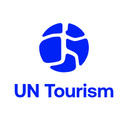COVID-19 Response: 96% Of Global Destinations Impose Travel Restrictions, UNWTO Reports
The scale of disruption caused by COVID-19 to global tourism is shown in a comprehensive new report on travel restrictions from the World Tourism Organization (UNWTO). The landmark report, published at a time of unprecedented disruption for the sector, shows that almost all global destinations have imposed restrictions on travel since January 2020, including complete bans on all travel as they work to contain the pandemic.
Over recent years, as the United Nations specialized agency for tourism, UNWTO has been regularly monitoring travel facilitation and observing a continuous trend towards more openness. COVID-19 has dramatically interrupted this. According to research carried out for the new report, as of 6 April, 96% of all worldwide destinations have introduced travel restrictions in response to the pandemic. Around 90 destinations have completely or partially closed their borders to tourists, while a further 44 are closed to certain tourists depending on country of origin.
Effect on Lives and Livelihoods
UNWTO Secretary-General Zurab Pololikashvili said: "COVID-19 has impacted travel and tourism like no other event before in history. Governments have put public health first and introduced full or partial restrictions on travel. With tourism suspended, the benefits the sector brings are under threat: millions of jobs could be lost, and progress made in the fields of equality and sustainable economic growth could be rolled back. UNWTO therefore calls on governments to continuously review travel restrictions and ease or lift them as soon as it is safe to do so."
The UNWTO global review shows that the global regions are largely consistent in their response to COVID-19. In Africa, Asia and the Pacific and the Middle East, 100% of destinations have adopted COVID-19-related restrictions since January 2020. In the Americas, 92% of destinations have taken similar steps, while in Europe, the proportion is 93% (as of 6 April).
Level of Response Evolving
More specifically, the analysis identifies four key types of restrictive measures, namely:
- Complete or partial closure of borders to tourists;
- Destination-specific travel restrictions ("Passengers who have transited or been in x are not allowed to enter x");
- The total or partial suspension of flights;
- Different measures, including requirements for quarantine or self-isolation, medical certificates, invalidation or suspension of visa issuances etc.
Timely and Responsible Recovery
In many instances, destinations have already adjusted their restrictive measures as the situation has evolved. UNWTO will continue to regularly track and analyse the evolution of travel restrictions, in an effort to effectively support the responsible but also timely recovery of the tourism sector.
About UN Tourism
The World Tourism Organization (UN Tourism) is the United Nations agency responsible for the promotion of responsible, sustainable and universally accessible tourism.
As the leading international organization in the field of tourism, UN Tourism promotes tourism as a driver of economic growth, inclusive development and environmental sustainability and offers leadership and support to the sector in advancing knowledge and tourism policies worldwide.
Our Priorities
Mainstreaming tourism in the global agenda: Advocating the value of tourism as a driver of socio-economic growth and development, its inclusion as a priority in national and international policies and the need to create a level playing field for the sector to develop and prosper.
Promoting sustainable tourism development: Supporting sustainable tourism policies and practices: policies which make optimal use of environmental resources, respect the socio-cultural authenticity of host communities and provide socio-economic benefits for all.
Fostering knowledge, education and capacity building: Supporting countries to assess and address their needs in education and training, as well as providing networks for knowledge creation and exchange.
Improving tourism competitiveness: Improving UN Tourism Members' competitiveness through knowledge creation and exchange, human resources development and the promotion of excellence in areas such as policy planning, statistics and market trends, sustainable tourism development, marketing and promotion, product development and risk and crisis management.
Advancing tourism's contribution to poverty reduction and development: Maximizing the contribution of tourism to poverty reduction and achieving the SDGs by making tourism work as a tool for development and promoting the inclusion of tourism in the development agenda.
Building partnerships: Engaging with the private sector, regional and local tourism organizations, academia and research institutions, civil society and the UN system to build a more sustainable, responsible and competitive tourism sector.
Our Structure
Members: An intergovernmental organization, UN Tourism has 160 Member States, 6 Associate Members, 2 Observers and over 500 Affiliate Members.
Organs: The General Assembly is the supreme organ of the Organization. The Executive Council take all measures, in consultation with the Secretary-General, for the implementation of the decisions and recommendations of the General Assembly and reports to the Assembly.
Secretariat: UN Tourism headquarters are based in Madrid, Spain. The Secretariat is led by the Secretary-General and organized into departments covering issues such as sustainability, education, tourism trends and marketing, sustainable development, statistics and the Tourism Satellite Account (TSA), destination management, ethics and risk and crisis management. The Technical Cooperation and Silk Road Department carries out development projects in over 100 countries worldwide, while the Regional Departments for Africa, the Americas, Asia and the Pacific, Europe and the Middle East serve as the link between UN Tourism and its 160 Member States. The Affiliate Members Department represents UN Tourism's 500 plus Affiliate members.
UN Tourism Communications Department
+34 91 567 8100
UN Tourism
